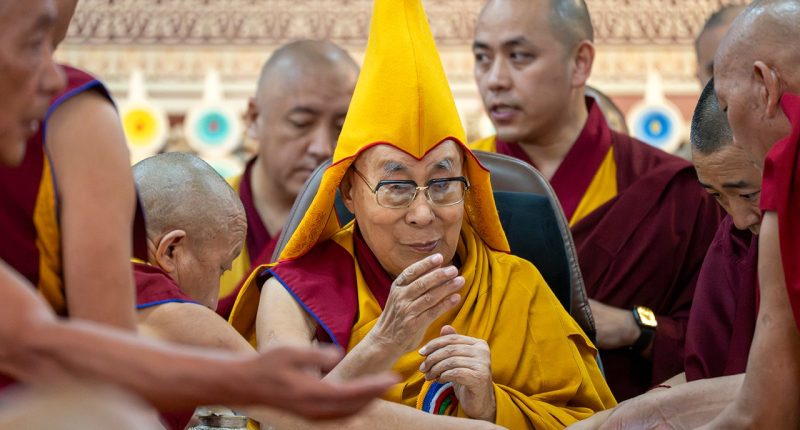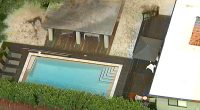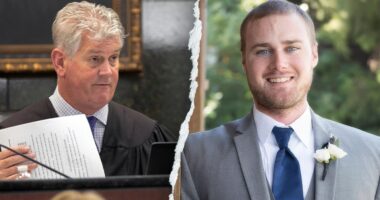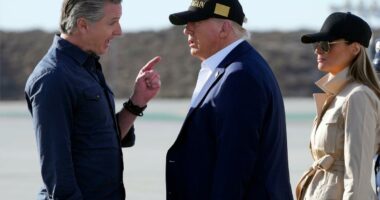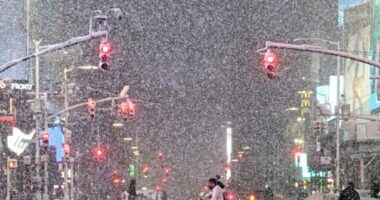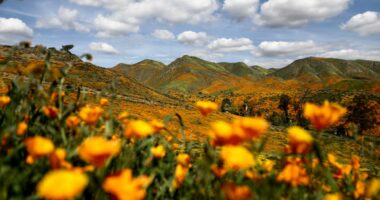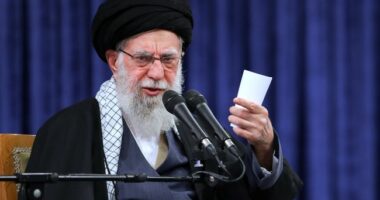Share this @internewscast.com
Tibetan spiritual leader, the Dalai Lama, has declared that the long-standing institution of the Tibetan Buddhist tradition will persist following his death. He emphasized that his successor must be selected independently, free from Chinese government influence.
As he approaches his 90th birthday this Sunday, the Dalai Lama, who is internationally celebrated with a Nobel Peace Prize for his leadership in Tibetan Buddhism, shared his plans for succession. This was conveyed in a recorded message broadcasted during a religious assembly of Buddhist monks in Dharamshala, India. Known at birth as Tenzin Gyatso, he was recognized as the 14th reincarnation of the Dalai Lama in 1940. He escaped from Tibet after Chinese military forces suppressed a revolt in Lhasa, the Tibetan capital, in 1959.
The English version of his speech, available on his official website, states that the duty of selecting the forthcoming Dalai Lama “will lie solely with the members of the Gaden Phodrang Trust.”
A non-profit he founded in 2015 that oversees matters related to the spiritual leader and the institute of the Dalai Lama, the trust “should consult the various heads of the Tibetan Buddhist traditions and the reliable oath-bound Dharma Protectors who are linked inseparably to the lineage of the Dalai Lamas,” the elderly leader said. “They should accordingly carry out the procedures of search and recognition in accordance with past tradition.”
“Tibetan Buddhists, like all faith communities, must be able to choose their spiritual leaders without coercion or interference by the authorities,” Brooks said.
The Dalai Lama has often urged his followers to reject anyone chosen by Beijing. He previously headed the Tibetan government in exile before relinquishing his political role in 2011.
Penpa Tsering, the current president of the government-in-exile, said Tibetans from around the world made “an earnest request with single-minded devotion” that the position of the Dalai Lama should continue “for the benefit of all sentient beings in general and Buddhist in particular.”
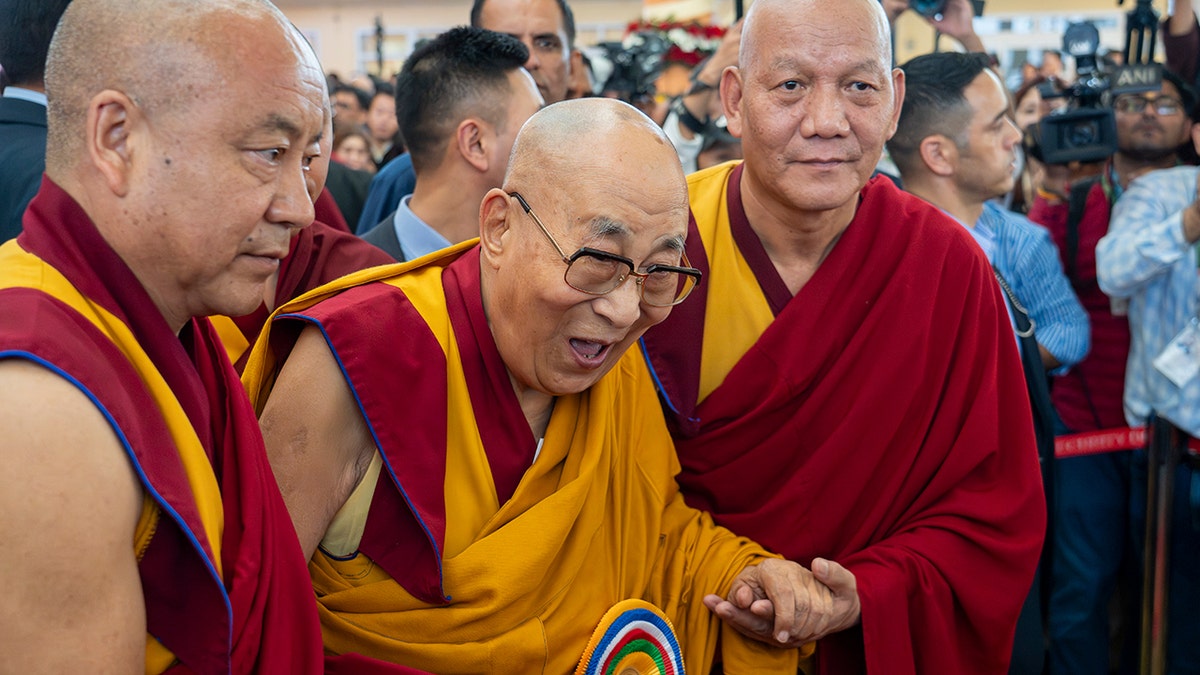
Attendant monks help the Dalai Lama to leave after presiding over an event celebrating his 90th birthday in Dharamshala, India, on Monday, June 30, 2025. (AP Photo/Ashwini Bhatia)
“In response to this overwhelming supplication, His Holiness has shown infinite compassion and finally agreed to accept our appeal on this special occasion of his 90th birthday,” he said at a press conference, according to the AP.
Tsering, however, warned China not to meddle in the process of the Dalai Lama’s succession, saying it is a “unique Tibetan Buddhist tradition.”
“We not only strongly condemn the People’s Republic of China’s usage of reincarnation subject for their political gain, and will never accept it,” he said.
The search for the Dalai Lama’s reincarnation begins only upon the incumbent’s death. In the past, the successor has been identified by senior monastic disciples, based on spiritual signs and visions, and it can take several years after the next Dalai Lama is identified as a baby, or “soul child,” and groomed to take the reins. The current Dalai Lama previously suggested the tradition could end with him – or that his successor could be an adult or an “attractive” woman, NPR reported.
Wednesday’s announcement essentially marked his decision to “reincarnate,” signaling that he believes the Dalai Lama tradition should not end with him.
